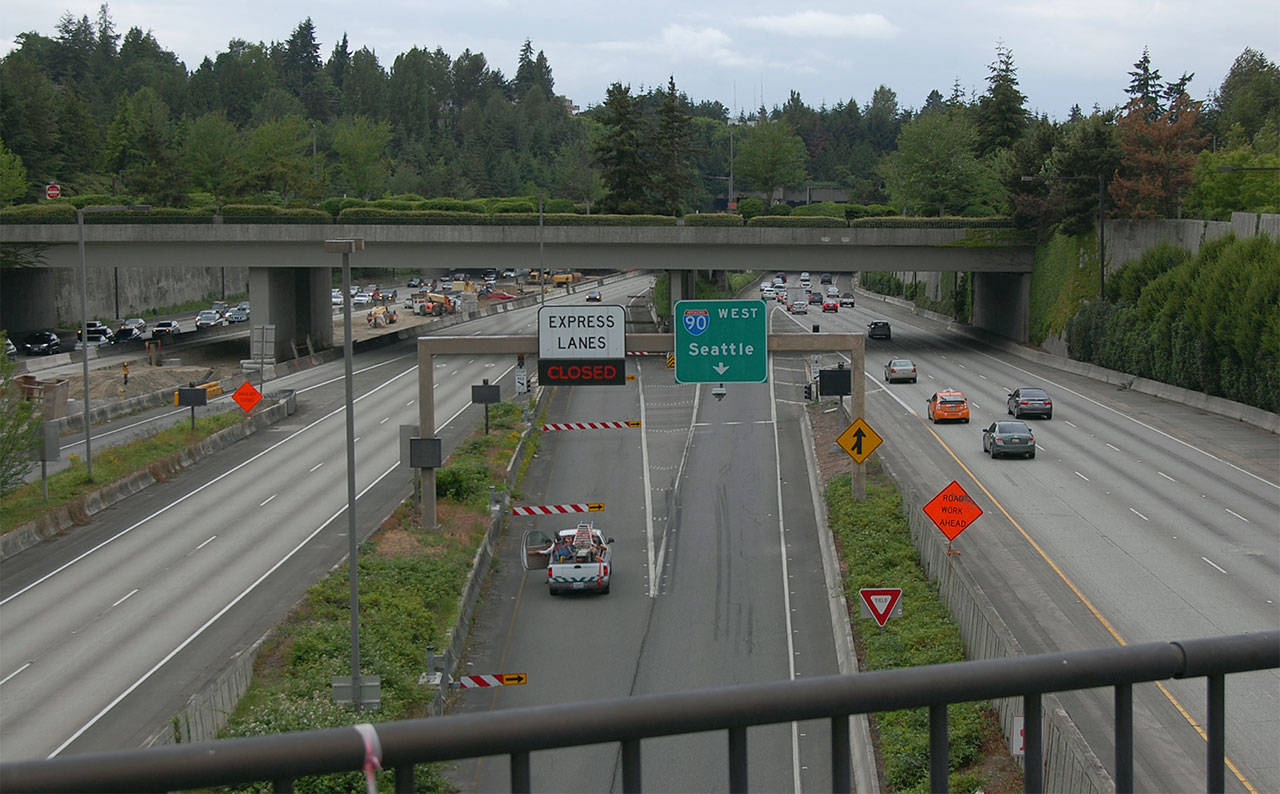Update: The city ended the suspension of the shoreline permit on March 17.
A week after the Mercer Island City Council held its public hearings on two moratoria related to the construction and permitting of light rail, a Superior Court judge was scheduled to rule on parts of the city’s case against Sound Transit and the Washington State Department of Transportation regarding access to Interstate 90.
Judge Beth M. Andrus held a hearing at 10 a.m. Friday to hear the arguments involving the city’s suspension of Sound Transit’s Shoreline Substantial Development Permit (SSDP), and said she would hand down a ruling by end of day Monday, March 13.
“The city’s position at today’s hearing was that Sound Transit should take up suspension of the SSDP with the Shorelines Hearings Board,” according to a city news release from March 10. “By contrast, Sound Transit’s position at the hearing was that the judge should lift the suspension.”
On Monday morning, Judge Andrus issued an order for a follow-up hearing, scheduled to begin at 10 a.m. on Friday, March 31, at the King County Courthouse.
“The city appreciates that Judge Andrus has allowed both parties additional time to make their case,” according to its website.
At the March 6 council meeting, City Attorney Kari Sand noted that the city had received a letter from Sound Transit’s legal counsel in opposition to the moratoria. Also on March 6, the city was notified of two counter claims against it: one challenging the suspension of the shoreline permit, and the other challenging the issuance of moratoria.
City Manager Julie Underwood said the city had expected to be challenged by Sound Transit. These hearings could be the first of many.
“If we cannot settle, there will likely be multiple court hearings within the next three months in which we will ask the court to delay closure of the center roadway and Sound Transit will seek to invalidate the city’s actions,” Councilmember Dan Grausz wrote in an email update to Islanders.
At the March 6 public hearing, several citizens testified in support of the moratoria, which address Public Institution zoning and “transportation concurrency” and “essential public facilities.” Many cited concerns with safety, mobility and “adverse impacts” caused by the reconfiguration of I-90 (including closing the HOV lanes and westbound Island Crest Way ramp to solo drivers, contrary to regional agreements going back to 1976) to accommodate light rail, including diverting traffic to school zones, affecting the safety of pedestrians and bicyclists and “clogging” the Town Center, hurting local businesses.
At the Feb. 17 Sound Transit Board of Directors meeting, the board voted to countersue Mercer Island, claiming that the moratoria and the suspension of the shoreline permit could delay construction of the East Link light rail project. Construction is scheduled to begin in June, when the I-90 center lanes close. The city’s lawsuit aims to ensure Mercer Island’s loss of mobility is mitigated before the closure.
In its counterclaims, Sound Transit alleges that six months of delay will cost the project more than $400,000 per month. It also claimed that if the work does not start by mid-June, it cannot be completed during the WSDOT-approved work window (April 1 to Oct. 1), delaying completion by eight months, at a cost of more than $100 million.
The moratoria are currently scheduled to expire on Aug. 11. To learn more about light rail construction and related litigation, visit www.mercergov.org/Rail-FAQ.
Residents may lend support to city’s I-90 efforts
The city of Mercer Island staff created a letter template for residents who want to lend support toward the city’s Interstate 90 efforts to preserve access and mobility during the East Link Light Rail construction project.
Residents can email or mail their message to various elected officials listed in the document, which can be found at www.mercergov.org/files/I-90_Resident_Support_Letter_8Mar2017.pdf.


